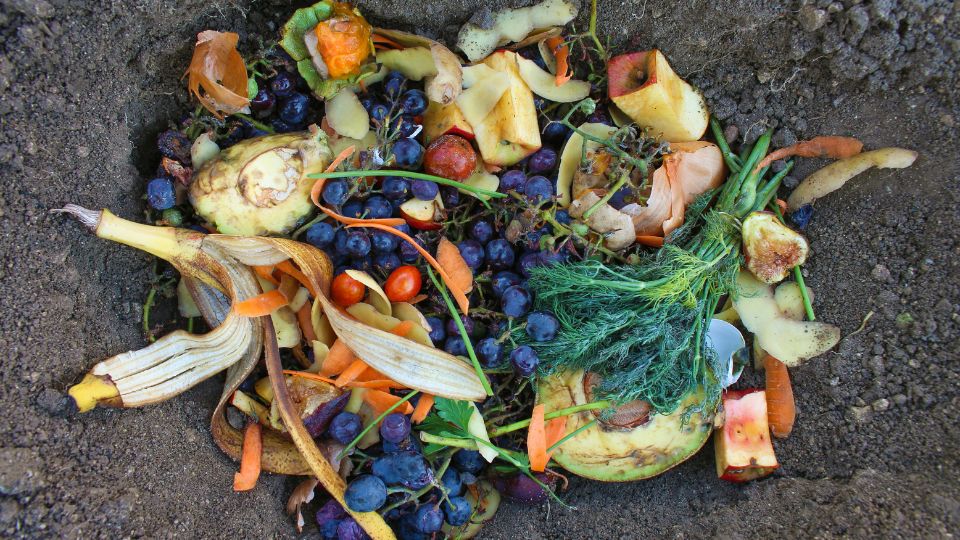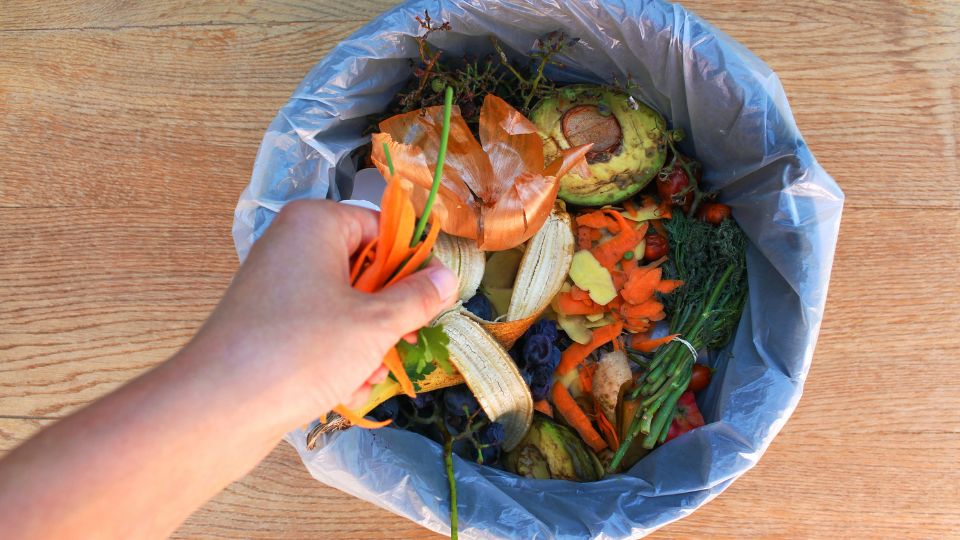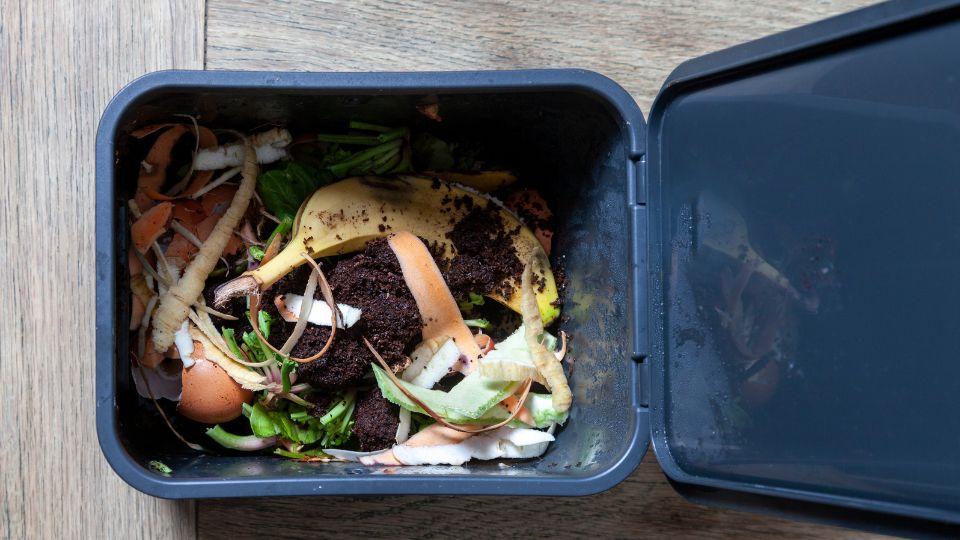
Quick Summary:
- Food waste should not be disposed of in a skip due to its potential environmental impact and regulatory requirements.
- Using dedicated food waste bins and working with specialised waste management services ensures compliance, reduces greenhouse gas emissions, and promotes effective recycling or composting of organic materials.
This blog outlines how to dispose of food waste and offers best practices for compliance, efficiency, and sustainability.
Table of Contents:
What is a Skip?
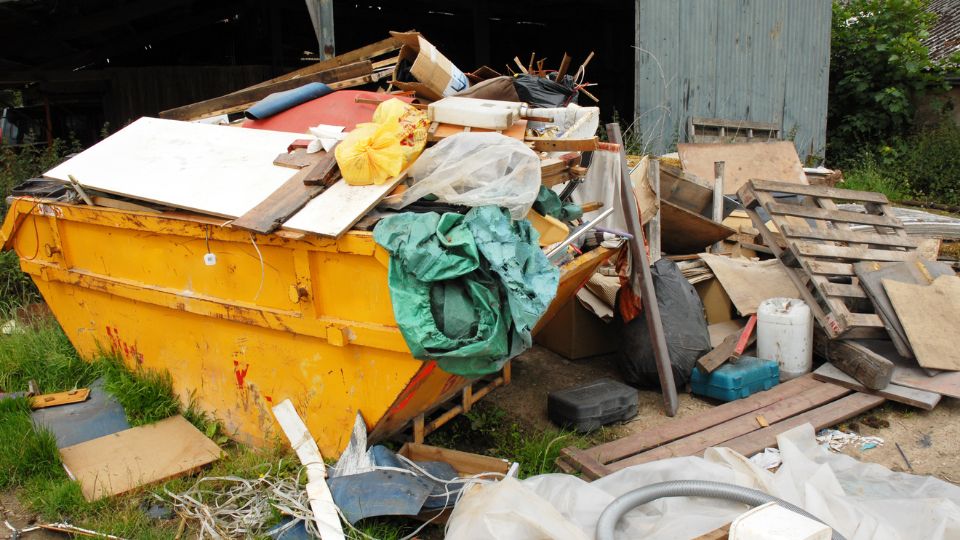
A skip is a large container for collecting and transporting waste, available in various sizes, and typically used for bulk disposal of construction debris, and general waste, or garden waste.
However, the suitability of a skip for food waste can vary depending on several factors.
Can Food Waste Go in a Skip?
In general, food waste should not be disposed of in a skip.
Here’s why:
Environmental Impact
When businesses dispose of food waste in a skip and send it to a landfill, the waste decomposes anaerobically and releases methane, a potent greenhouse gas
Decomposition can produce various greenhouse gases, with methane being particularly harmful. In the UK, landfills are responsible for around 25% of all methane emissions, underscoring the critical need for better food waste management
Proper food waste disposal helps reduce these emissions by diverting organic waste to composting or anaerobic digestion facilities. Within these facilities, food waste is converted into green energy.
300 kWh of energy can be made from digesting 1 tonne of food waste.
To put it into perspective:
- Digesting 1 tonne of food waste can generate about 300 kWh of energy – For electric vehicles, 300 kWh of energy can drive approximately 1,200 miles, assuming an average consumption rate of 0.25 kWh per mile.
- It can power 10 LED light bulbs (each using 10 watts) for approximately 1,250 hours.
- It’s roughly equivalent to powering a typical household refrigerator for about 3-4 months.
Regulatory Compliance
UK regulations require businesses to separate food waste from general waste.
Many local councils and waste management authorities provide specific guidance and requirements for food waste disposal, and failing to follow these rules can result in fines or penalties.
The UK government’s Simpler Recycling legislation requires businesses to separate food waste from other waste for recycling. This includes public and third-sector organisations like schools, hospitals, and prisons.
Effective Waste Management
Businesses use skips for general waste that doesn’t need special handling, but food waste needs different treatment methods for effective recycling or composting, which skips cannot provide.
Best Practices for Food Waste Disposal
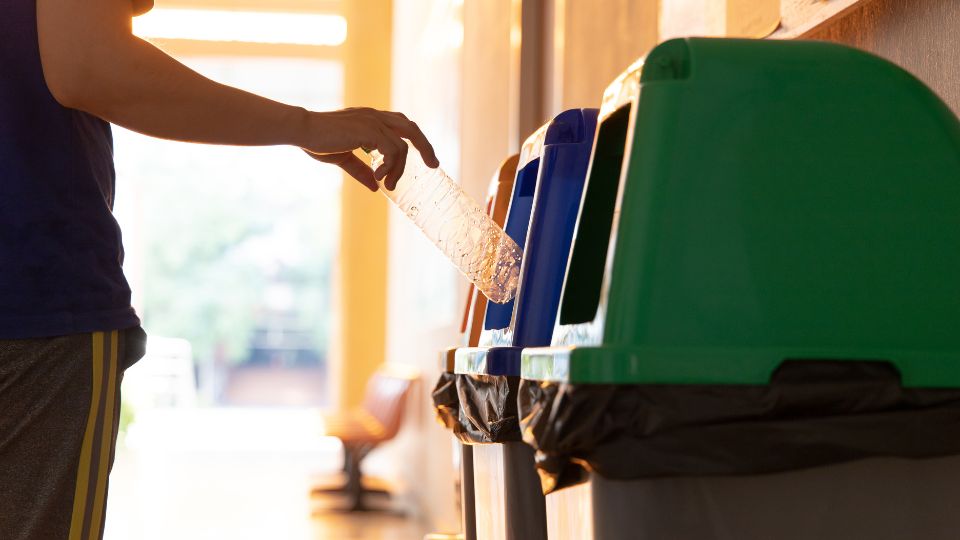
- Use Dedicated Food Waste Bins: Most councils provide separate bins for food waste. Food waste bins handle organic materials and ensure they undergo correct processing, typically through composting or anaerobic digestion.
- Educate Your Staff: Make sure your team understands the importance of food waste separation and knows how to use the designated bins properly. Training and clear signage can help avoid contamination and ensure compliance.
- Waste Management Services: Partner with a waste management provider that offers food waste collection and processing to set up effective systems and manage your food waste sustainably.
- Monitor and Review: Regularly check your waste management practices and adjust as necessary to improve efficiency and compliance. Tracking your food waste can also help identify areas for reduction and better management.
Conclusion
Food waste should avoid skips due to its environmental impact, regulatory needs, and required specialised processing.
By adopting these best practices, businesses can contribute to sustainability efforts, reduce their carbon footprint, and avoid potential fines.


